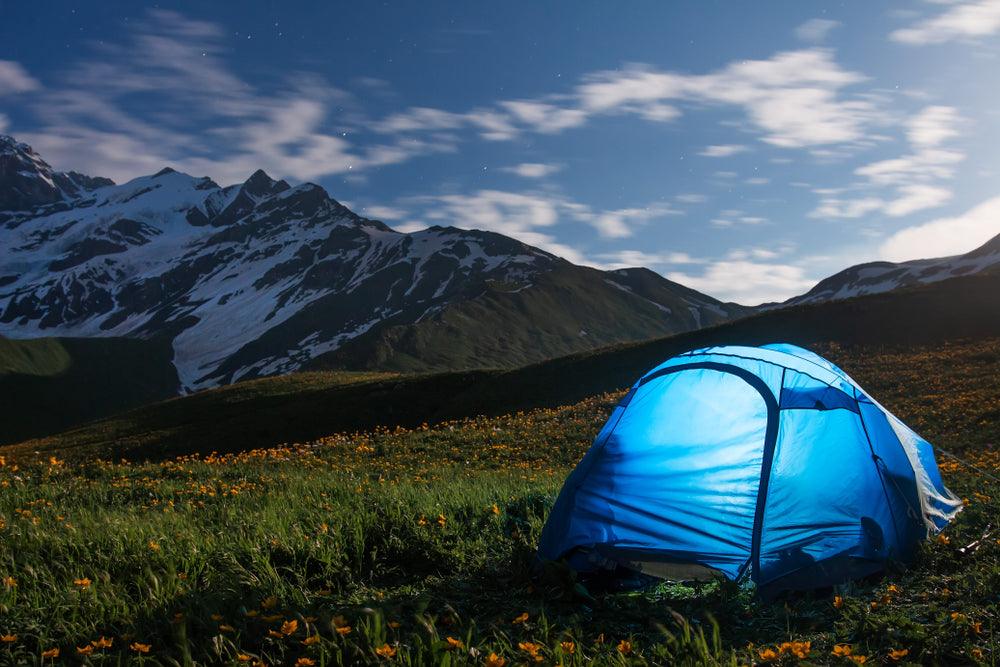3 Things to Consider When Choosing a Tent

Picking the right tent for your needs can be a daunting task. There are so many different types of tents and brands to choose from, it can seem impossible to find one that will meet all of your requirements. However, with some research and careful consideration, you'll be able to find the perfect camping tent for you!
We've identified 3 things to consider when choosing a camping tent. Read on if you want help picking out a new tent!
#1: WEIGHT
The weight of your tent is a crucial factor in choosing the right one for you. Depending on how much effort it takes to get to camp, this could be an important consideration! For example, if you have a clear line of sight from your car to your campsite, weight may not matter as much. However, if you're planning to hike to a campsite, you'll most likely want to look for a tent that is no more than 5 lbs. Typically, tent descriptions will list a maximum and minimum weight. Maximum usually includes everything such as canopy, poles, stakes, rainfly, and stuff sack. Minimum usually includes everything except the stakes and stuff sack.
Questions to ask yourself:
- How will you carry the tent from your car to the campsite?
- What accessories do you absolutely need and how will this impact the total weight of your tent?
#2: TENT-MATES
Determining how many people, pets and gear will need to fit inside the tent will impact how much floor space is needed. If your group includes children, pets or a lot people who are tall and/or wide-framed then choosing an "all purpose" style tent with more headroom might be best for everyone! However if its just two adults or even a solo adventure, a smaller tent may meet your needs. On average, 15-20 square feet per person of floor space will provide everyone enough elbow room.
Questions to ask yourself:
- How close does everyone want to be to one another?
- Is anyone claustrophobic?
- How much gear do you need to store inside the tent?
#3: SEASONALITY
The most common type of tent choice is a 3-season tent (spring, summer and fall). These type of tents are usually lighter in weight and are cooler in warmer weather. 3-season tents are designed for ample air flow yet offer protection from bugs through the use of mesh paneling. Most 3-season tents are double-walled, which means the tent consists of the tent body -floor and walls and fly. Tip: A tent fly allows a tent to vent excess heat and provides waterproofing benefits. Note, 3-season tents are not intended for exposure to severe weather including snow, extreme winds or other harsh weather conditions.
On the other hand, if you're the adventurer who camps all year-around, you may need to consider a 4-season tent which is designed to withstand snow, high winds and cold weather. Contrary to the description, 4-season tents are most suitable for cold weather camping due to the fact that they less breathable, meaning less ventilation, more warmth retention and wind resistance.
Most people who do camp year-around have a couple of tents – one for winter, another for the remainder of the year.
Question to ask yourself:
- How often and during which seasons do you go camping?
While there’s many other considerations to take into account as you choose the best tent, just remember to be honest with yourself and your needs. A tent is your home, shelter, place to rest during your overnight stay in the outdoors. Whatever you do decide, make sure that you’re familiar with your tent before you take it on an adventure - the pieces and parts and how to set-up. Happy camping!


